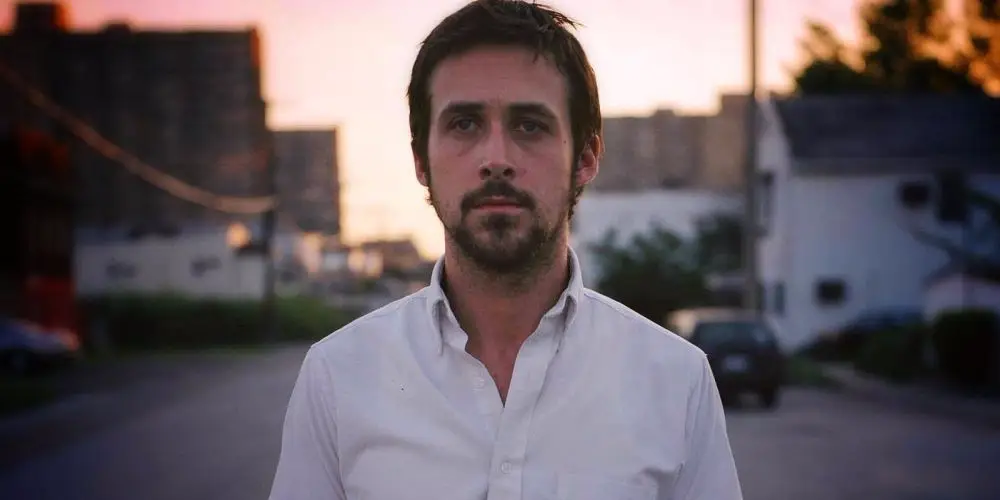Ryan Gosling’s Acting Philosophy: Subtlety, Empathy, and the Power of Silence

(Ryan Gosling)
Ryan Gosling has carved out a distinct place for himself in Hollywood with a career that spans genres and offers a wide range of performances. Known for his brooding yet nuanced portrayals, Gosling has become a favorite among critics and audiences alike. His ability to convey emotion with subtlety, often relying on minimalism rather than overt displays of emotion, sets him apart from many of his peers. In this article, we’ll explore Ryan Gosling’s acting philosophy, examining how his approach to his craft, his characters, and his creative choices have contributed to his success.
1. The Art of Subtlety and Restraint
One of the defining aspects of Gosling’s acting philosophy is his belief in the power of subtlety. Known for his understated performances, he often relies on what is not said or done to convey the depth of his characters. Rather than playing for obvious emotion, Gosling’s style is about restraint and letting the character’s internal world speak louder than external displays.
Quote:
“I think the moments that matter the most are the ones that are left unsaid. A lot of times, I’m trying to create space in a performance. Space for the audience to feel something or think something.”
— Ryan Gosling
This minimalism can be seen in his portrayal of characters like Sebastian in La La Land (2016), where his quiet passion for jazz and his relationship with Mia (Emma Stone) unfolds through a series of glances, subtle gestures, and moments of silence. Gosling allows his characters to simmer beneath the surface, making every word or action carry more weight. This nuanced approach gives his performances a complexity that audiences can connect with on a deeper emotional level.
2. Empathy as the Heart of His Performances
At the core of Gosling’s acting philosophy is empathy—the ability to deeply understand and connect with the characters he plays. He approaches every role with a sense of compassion, trying to understand the character’s motivations and emotions, even when those characters are flawed or troubled. This empathy allows Gosling to portray even the most complicated figures with humanity and understanding, creating characters who feel grounded and real.
Quote:
“I think that, as an actor, the most important thing is to have empathy for your character. You have to see the world from their perspective.”
— Ryan Gosling
This is evident in his performance as the driver in Drive (2011), where his character, despite being quiet and detached, is revealed to have an inner world driven by a strong moral code. Gosling’s ability to portray empathy through such a stoic character shows how deeply he understands the emotional core of his roles, making him one of the most empathetic actors of his generation.
3. The Power of Silence and Nonverbal Communication
Another key element of Gosling’s acting philosophy is his emphasis on the power of silence and nonverbal communication. He often uses stillness to his advantage, allowing his characters to express their emotions without speaking. Gosling understands that sometimes, the most powerful moments in film come not from dialogue, but from the space between words.
Quote:
“I’m a big believer in silence, especially in film. I think silence has a lot more power than people realize. If you can convey everything you need to with a look, then that’s enough.”
— Ryan Gosling
In films like The Place Beyond the Pines (2012) and Blue Valentine (2010), Gosling uses silence and small physical movements to communicate his character’s inner turmoil, desires, and conflicts. His mastery of nonverbal cues allows him to create profound emotional moments that resonate with the audience.
4. A Focus on Collaboration and Trust
While Gosling is known for his quiet intensity on screen, he is also deeply committed to collaboration. His acting philosophy centers on the idea that filmmaking is a team effort, and he values the input of directors, fellow actors, and the entire crew. Gosling’s collaborations with directors like Nicolas Winding Refn and Damien Chazelle have produced some of his most memorable performances, and he believes that a good relationship with the director is key to delivering an authentic performance.
Quote:
“It’s all about the director’s vision. As an actor, you’re just trying to contribute to what they’ve created, to make the world they’ve built as real as possible.”
— Ryan Gosling
In his collaboration with director Nicolas Winding Refn on Drive, for example, Gosling trusts in the director’s vision to craft a character who is both enigmatic and emotionally compelling. Gosling’s ability to work seamlessly within the director’s framework is a testament to his belief that acting is about contributing to the larger story, not just standing out as an individual.
5. The Choice of Characters: A Balance of Vulnerability and Strength
Gosling is known for choosing characters that are often a blend of vulnerability and strength. His characters tend to have a sense of emotional depth, which he portrays with both strength and sensitivity. Whether playing a conflicted loner in Drive, a father struggling with his past in The Place Beyond the Pines, or a sensitive romantic in La La Land, Gosling’s characters are always layered with both internal and external struggles.
Quote:
“I like playing characters that are not one thing. They’re not entirely good or entirely bad, because I think that’s what people are like. We’re all just trying to make sense of the world.”
— Ryan Gosling
Gosling’s understanding of the complexity of human nature allows him to portray multifaceted characters who are neither heroes nor villains, but rather individuals trying to navigate the challenges of their lives. This approach not only makes his characters more relatable but also showcases his ability to embody the contradictions and complexities that make people interesting.
6. The Importance of Risk-Taking and Pushing Boundaries
Ryan Gosling is an actor who is unafraid to take risks and push boundaries. He has built a career that includes both mainstream films and more experimental, indie projects. This willingness to take risks with his roles shows his commitment to evolving as an actor and exploring new creative territory. Gosling has worked on everything from big-budget films like The Notebook (2004) to more unconventional projects like Only God Forgives (2013), demonstrating that he is not interested in playing it safe.
Quote:
“I’ve always been interested in taking risks. I don’t want to play it safe. I’d rather take a chance and fail than stay in my comfort zone.”
— Ryan Gosling
By constantly challenging himself with different kinds of roles, Gosling has been able to avoid being typecast, allowing him to grow and expand his range as an actor. His risk-taking has led to some of his most critically acclaimed performances, and it continues to define his approach to his craft.
7. Finding Joy in the Process
Despite the intensity of his roles and his commitment to authenticity, Gosling remains focused on finding joy in the process of acting. He views acting as a way to explore human emotion and connection, and he believes that enjoying the process is key to delivering a genuine performance.
Quote:
“I think if you’re not having fun while you’re doing it, then you’re probably not doing it right. Acting is about exploring human experience, and that should be a joy in itself.”
— Ryan Gosling
This love for the craft is evident in his performances. Whether he’s playing a romantic lead in La La Land or a complex antihero in Blade Runner 2049 (2017), Gosling brings a sense of enjoyment and curiosity to his roles, which enhances the authenticity of his work.
Conclusion
Ryan Gosling’s acting philosophy is centered on subtlety, empathy, and an unwavering commitment to authenticity. His focus on restraint, collaboration, and the ability to bring depth to his characters has made him one of the most respected actors of his generation. By embracing silence, taking risks, and always striving to connect with the human experience, Gosling’s approach to acting ensures that each of his performances feels genuine, memorable, and profoundly emotional. As he continues to evolve in his career, Gosling’s acting philosophy will undoubtedly remain a guiding force in his journey as an artist.




